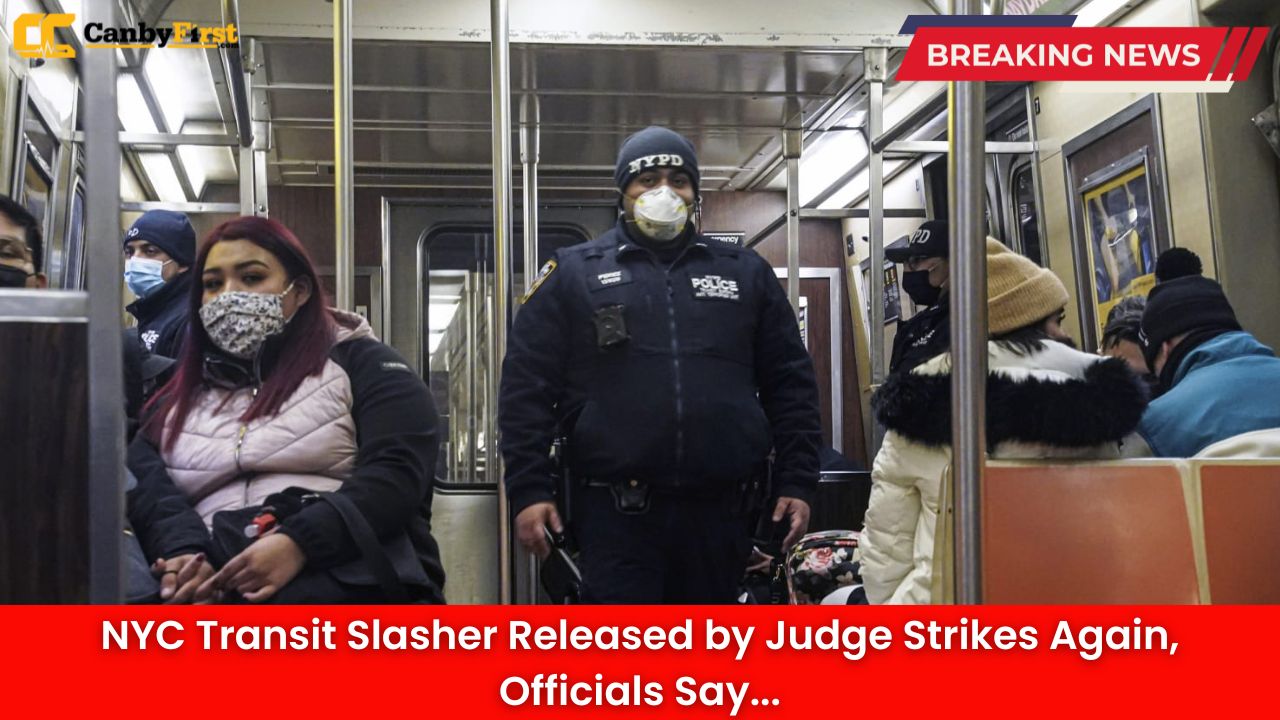New York, US:
A man previously accused of slashing a subway rider earlier this year has allegedly attacked another commuter just days after being released by a New York City judge, according to transit officials and law enforcement sources. The incident has renewed public outrage over bail reform policies and the release of violent offenders back into the community.
Authorities said the latest assault took place late Wednesday night at the Broadway Junction subway station in Brooklyn, where the suspect allegedly slashed a 36-year-old man in the face during an argument on the platform. Witnesses claim the attack was unprovoked and that the assailant fled onto a departing A train after the incident.
Also Read
The victim is said to be in stable condition at Kings County Hospital.
Background: A Repeat Offender Set Free
The suspect, identified by police as 32-year-old Marcus “Slim” Turner, had been arrested just three weeks ago for a similar knife attack inside a Manhattan-bound 2 train near Times Square. Court records show that Turner was charged with assault and criminal possession of a weapon but was released on his own recognizance after a judge opted against setting bail, citing lack of prior felony convictions.
Officials said that Turner’s earlier arrest had been part of a pattern of aggressive behavior stretching back over a year, including multiple complaints of threats and harassment on public transit.
“Releasing this individual back onto the streets was a mistake that could have cost someone their life,” an NYPD official said on condition of anonymity. “We warned that he was a danger to commuters, and now we’re dealing with the consequences.”
Police Launch Citywide Manhunt
By Thursday morning, NYPD Transit Bureau officers had flooded key subway lines across Brooklyn and lower Manhattan. Police circulated surveillance photos showing Turner boarding a train immediately after the latest assault, wearing the same gray hoodie and jeans captured on video from previous incidents.
Authorities are urging anyone who spots the suspect to avoid confronting him and to call 911 immediately.
“We will find this individual and bring him into custody swiftly,” NYPD Chief of Transit Michael Kemper said in a morning briefing. “New Yorkers deserve to feel safe when they ride the subway, and one violent offender will not define this system.”
Political Fallout and Public Anger
The renewed attack has intensified debate over New York’s bail reform laws, which limit judges’ ability to impose bail for many non-violent or lower-level offenses. Critics argue that those charged with violent acts—especially with weapons—should not be released before trial, regardless of prior record.
Mayor Eric Adams expressed frustration at the situation, saying during a press conference at City Hall, “Our justice system needs to protect New Yorkers first. When someone commits violent crimes, they should not be free to repeat those crimes on our trains.”
President Trump, who has repeatedly criticized crime in major Democratic-led cities, weighed in on social media early Thursday, writing that “New York’s soft-on-crime policies are destroying the greatest city in the world.”
Public concern has also risen sharply among subway riders. Commuters at Broadway Junction voiced fear and anger, demanding increased police presence on trains and platforms, particularly during late-night hours.
Subway Safety and Ongoing Prevention Efforts
The Metropolitan Transportation Authority (MTA) has been under pressure for months to boost security amid a rise in violent subway incidents throughout 2025. While overall ridership has recovered to nearly 80% of pre-pandemic levels, transit-related assaults have climbed 12% compared to the previous year, according to internal MTA data shared with city officials.
To combat the uptick, the MTA and NYPD recently launched a joint initiative deploying more uniformed officers and unarmed security staff across high-traffic stations. Surveillance technology upgrades and an expanded public awareness campaign encouraging bystander reporting are also part of the strategy.
Transit officials say these measures have helped deter some forms of petty crime but acknowledge that repeat violent offenders present a persistent challenge.
Legal Response and Next Steps
As the manhunt continues, the state’s Office of Court Administration defended the judge’s earlier decision to release Turner, emphasizing that the court acted within the bounds of state law. However, advocacy groups supporting crime victims are now calling for legislative reforms that would allow judges greater discretion in cases involving potential public safety risks.
Governor Kathy Hochul’s office issued a statement saying she has requested a full report from state and city law enforcement on how Turner’s case was handled. Lawmakers are expected to revisit bail and pretrial detention laws before the end of the legislative session.
Meanwhile, police have increased patrols at major transit hubs, describing the move as both precautionary and to restore public confidence.
Vigilance Urged as Investigation Continues
The NYPD continues to collect witness statements, review surveillance footage, and track tips from the public. Officials warn that Turner should be considered armed and dangerous.
Commuters are advised to remain alert, avoid confrontations, and report any suspicious activity immediately.
“The subway is the lifeline of this city,” said Chief Kemper. “We will not allow fear to define how New Yorkers move around their own home.”
Frequently Asked Questions
Who is the suspect in the NYC transit slashing attacks?
Police have identified 32-year-old Marcus Turner as the suspect in both attacks. He remains at large.
Why was the suspect released previously?
Turner was released without bail after his last arrest because the court ruled his charges did not qualify for mandatory detention under current bail reform laws.
Is the subway still safe to use?
Officials maintain that the subways are secure, with increased police patrols and surveillance efforts underway. However, they encourage riders to stay alert, travel in groups when possible, and report unsafe behavior.
What happens next?
Police are conducting a citywide manhunt while city and state leaders review existing bail and safety policies that may have contributed to the suspect’s release.












